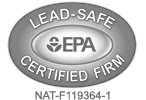12 Tips for Better Indoor Air Quality During the Summer

Indoor air quality is important during the summer months, especially if you are looking for some relief from the heat. While you may be tempted to use harsh cleaners or air fresheners to improve how your house smells, doing so may have a negative impact on your indoor air quality. If you worry about the indoor air quality in your home, there are several things you can do to make sure it stays healthy all summer long.
1. Keep Your Home Clean
Cleaning your house is an important step toward having better indoor air quality during the summer. Dusting can pick up dust mites and contribute to better indoor air quality. Use a vacuum with a HEPA filter to collect dust and other debris from the floor and carpeting. Mopping hardwood floors will also keep dust and dirt out of your home. Be sure to regularly wash your bedding too, as this can keep the population of dust mites done. Reducing clutter in your home and making sure your attic and basement are clean and organized will also improve your indoor air quality because there won’t be as many places for dust to settle and accumulate.
2. Use Natural Cleaning Products
Using natural cleaning products helps cut the harsh chemicals in your home, which can contribute to poor indoor air quality. Some chemical cleaning products contribute to indoor air pollution by releasing VOCs (volatile organic compounds) into the air, while most natural cleaning products scented with natural ingredients do not.
3. Open Windows and Doors
Opening windows and doors can help with indoor air quality, as long as the air outside is not polluted. Otherwise, those pollutants will enter your home. Proper air circulation is important for maintaining good indoor air quality, so opening your windows or doors during a cooler day may help prevent the buildup of pollutants and improve air quality. More airflow can also reduce humidity.
4. Use an Air Purifier
Using an air purifier is a great way to help improve your indoor air quality. Air purifiers extract pollutants and contaminants from the air. They can also get rid of small particles like pollen and dust that may affect your allergies. Air purifiers even remove smoke and odors so that you can breathe easier. If you do not sleep well or you find yourself sick more often because of the poor indoor air quality inside your home, an air purifier can help.
5. Have Your HVAC System Inspected
When you get your HVAC system professionally inspected, you can significantly improve indoor air quality. Your HVAC system is responsible for circulating air throughout your home, and over time, it can accumulate dust, dirt, and other pollutants. These particles can negatively impact your indoor air quality. Therefore, having your HVAC system inspected can help get rid of some of these pollutants. An HVAC inspection can also identify problems with the system, such as leaks, malfunctioning components, and broken seals. Fixing all of these components can help improve the performance of the system, which will, in turn, reduce the number of pollutants and contaminants circulating in the air.
6. Change Air Filters Regularly
Regularly changing air filters is an essential step in improving indoor air quality. Air filters in HVAC systems help trap and remove pollutants and contaminants from the air. Over time, these filters become clogged with pollutants or contaminants, which reduces their effectiveness and potentially releases pollutants back into the air in your home. So, it is essential to change the filters in your HVAC system regularly to keep the indoor air quality at a good level.
7. Control Humidity Levels
Controlling the humidity levels in your home can have a huge impact on improving indoor air quality. If you have high humidity levels, bacteria can grow. Maintaining proper humidity levels in your house can also improve your comfort level so that you don’t feel too dry or too hot and sticky. For the air in your home to remain healthy and comfortable, it should have between 30% and 50% humidity.
8. Don’t Smoke in Your Home
Smoking in your house can have a significant negative impact on indoor air quality. Smoking can release harmful chemicals such as carbon monoxide, formaldehyde, and tar into the air. These chemicals can linger for hours and even days, leading to decreased indoor air quality. Cigarette smoke also contains particulate matter. This matter causes respiratory problems when people inhale it into their lungs. Particulate matter can also settle on surfaces in your home and contribute to poor indoor air quality. Cigarette smoke can cause lingering odors, which leads to an unpleasant as well as unhealthy environment. If you or other people spoke in your home, it is important to stop right away to improve indoor air quality.
9. Use Natural Air Fresheners
If you want to use air fresheners in your home, it is important to opt for natural options. Natural air fresheners can prevent chemicals from being released into the air in your house. Natural air fresheners will ensure that you reduce chemical exposure while having a better-smelling home.
10. Avoid Synthetic Fragrances
Synthetic fragrances can significantly lower the indoor air quality in your house. They do this by releasing harmful chemicals into the air. You can find synthetic fragrances in perfumes, cleaning products, personal care products, and laundry detergents. Synthetic fragrances can cause sensitivity and allergies, which can trigger health issues like headaches, asthma attacks, coughing, and sneezing, among other health problems. Not using these products will help you increase the indoor air quality in your home this summer.
11. Test for Radon
Radon affects indoor air quality because it can accumulate in high concentrations and cause major health problems. While this gas is colorless, odorless, and tasteless, it still impacts air quality because it is a radioactive gas that can cause health problems without warning. Some of the signs that you may have a radon issue in your home include coughing, wheezing, and shortness of breath. Risks increase for smokers and children. Long-term exposure can even cause diseases. Having the radon level in your home tested will help ensure that you aren’t exposed to harmful levels.
12. Ensure Proper Ventilation
Proper ventilation is essential for improving indoor air quality during the summer. Things you can do so that your home has proper ventilation is use exhaust fans in bathrooms, kitchens, and laundry rooms. Another way to increase ventilation in your home is to install ventilation systems. Ensure that you have your HVAC system serviced throughout the year by scheduling appointments and reminders ahead of time.
Contact Us Today!
At Brennan Heating & Air Conditioning in Lynnwood, Washington, we provide air duct cleaning, diagnostics, and maintenance for your HVAC system. Our skilled team also offers heating and cooling repair and installation services. We can repair or install a water heater in your house, too, and our team can even offer you a free energy consultation. Contact Brennan Heating & Air Conditioning for more information today!






